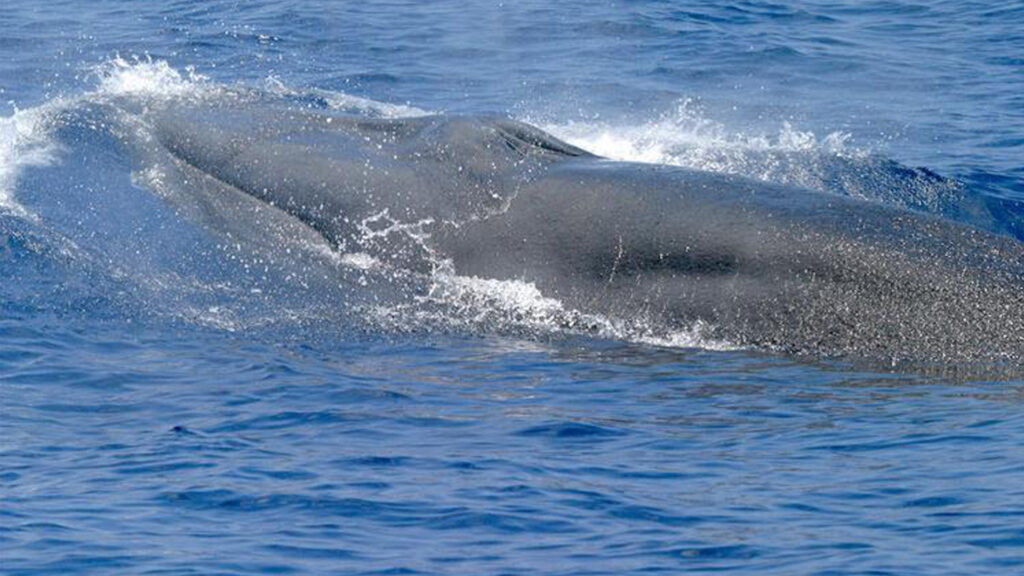By Christian Wagley, Healthy Gulf
In 2021, marine researchers made a remarkable discovery — they identified a whale species in the Gulf of Mexico that was new to science. This discovery of the new resident Gulf of Mexico whale, also called the Rice’s whale, must be a call to action. The whale is one of the rarest and most critically endangered animals on Earth, with only about 51 remaining. What can we do to protect these remarkable creatures?

The first step is to slow down our boats in the areas where people have most frequently spotted the whales. In October 2022, 100 scientists warned in a letter to the Biden administration that, unless protections are increased for the Gulf of Mexico whale, we could see the first human-caused extinction of a whale species in history. There are multiple instances documented of these whales being struck by vessels and either injured or killed, and vessel strikes are one of the most common causes of mortality for whale species worldwide. The National Oceanic and Atmospheric Administration (NOAA) is now accepting comments from the public about a proposed slow-speed zone to protect gulf whales.
These magnificent whales can grow to be nearly as long as a railroad boxcar and as heavy as a typical firetruck, and they play a vital role in the health of the Gulf of Mexico. The whales feed at depth on small schooling fish, and in doing so bring nutrients from the deep sea to the surface. This drives an enhanced productivity in the open gulf that ultimately creates more food for seabirds and pelagic fish like tuna, marlin and wahoo.
In May 2021, a coalition of conservationists — Healthy Gulf, Earthjustice, the Natural Resources Defense Council, the Center For Biological Diversity, Defenders of Wildlife and the New England Aquarium — filed a petition calling on the National Marine Fisheries Service to set a 10-knot speed limit for vessels transiting the whales’ habitat. At the time, most documented sightings were around a deep-water feature called the DeSoto Canyon about 60 miles off Pensacola. But more recent studies have confirmed that the whales are also consistently found in a rainbow-shaped band that stretches from Florida across the northern gulf all the way through Texas in waters 100 to 400 meters deep — underscoring the urgent need for wider protections from vessels.

Protecting the Gulf of Mexico whale is part of the shared values of what it means to be an American. Some 50 years ago, the Endangered Species Act enshrined those values in our law, formally stating that we value the plants and animals that share our land and waters and we will not allow them to go extinct due to our actions.
And cooperating with each other is part of what it means to be human. Our ability to work together toward larger common interests over narrow and selfish ones has allowed the human species to flourish. We can do the same in extending that cooperation to the survival of the Gulf of Mexico whale.
These last remaining whales are remarkable survivors, struggling to stay alive. If you want to help them out, please take a few minutes to send in a comment to NOAA and get us on track to establish a special slow-speed zone for gulf whales. Here’s the link to send in comments to NOAA https://www.regulations.gov/document/NOAA-NMFS-2023-0027-0001.
Christian Wagley is the Florida/Alabama organizer for a Healthy Gulf. This opinion piece was originally published by the Tampa Bay Times, which is a media partner of The Invading Sea.
If you are interested in submitting an opinion piece to The Invading Sea, email Editor Nathan Crabbe at nc*****@*au.edu. Sign up for The Invading Sea newsletter by visiting here.



